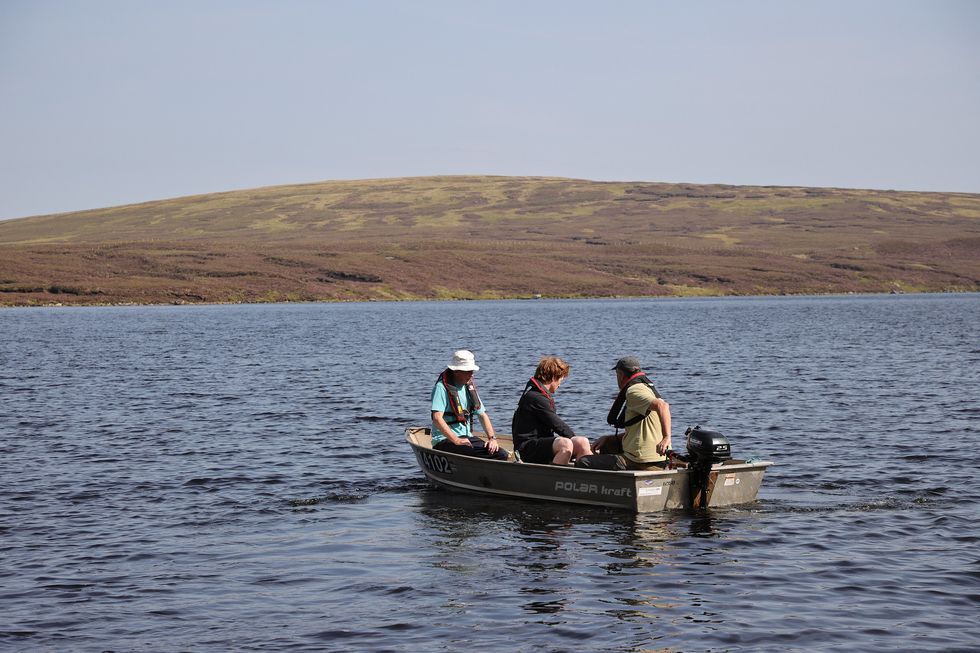Lucinda Cameron
Nov 03, 2025

Vendace were introduced to Loch Skeen in the late 1990s (NTSMediaPics/PA)
A rare fish which dates back to the Ice Age is continuing to thrive in a loch where it was introduced after becoming extinct in Scotland, a survey has found.
Vendace, said to be the UK’s rarest native freshwater fish, is a northern species which needs cold, deep and well-oxygenated lochs in order to survive.
They became extinct in Scotland at some point last century but were introduced to Loch Skeen in the National Trust for Scotland’s (NTS) Grey Mare’s Tail Nature Reserve in Dumfries and Galloway in the late 1990s.
The species has only been known to exist at four sites across the UK and only one natural population now remains, at Derwentwater in the Lake District.
Every species we protect is a step towards safeguarding Scotland's nature, beauty and heritage for everyone
Dan Watson, NTS
A survey carried out at Loch Skeen found the vendace population there is “highly abundant”, though conservation experts warned climate change may pose threats in the future.
Ciaran Hatsell, head ranger at the NTS Grey Mare’s Tail Nature Reserve, said: “The vendace is an incredibly rare and iconic species, and we are very fortunate to have them present here in the depths of Loch Skeen at Grey Mare’s Tail.
“The species faces many threats, from invasive species to water pollution, but climate change is one of its biggest challenges.
“Loch Skeen is currently the perfect environment for them, but warming temperatures could change this for the species in the future.
“We are therefore delighted to confirm that the population is in good health. It is a huge collaborative effort to continue protecting and conserving our places and species, and it is an honour to champion the vendace in Scotland.”

Due to the specific cold water temperatures the species needs to survive, vendace are particularly vulnerable to climate change and are one of the priority species in the NTS plan for nature.
To carry out the survey, a small boat was used to set nets on the loch, with trust staff, consultant Alex Lyle and experts from the University of Glasgow involved.
Dan Watson, senior nature conservation officer at NTS, said: “The success of the vendace population at Loch Skeen is a testament to the hard work and skill of dedicated staff, volunteers and specialist contractors, and highlights the trust’s role in protecting and conserving wildlife in Scotland’s changing natural environment through targeted conservation efforts, including habitat restoration and monitoring programmes.
“Every species we protect is a step towards safeguarding Scotland’s nature, beauty and heritage for everyone.
“We are very grateful to our supporters and members for enabling us to continue to understand, care for and protect our natural heritage.”
Vendace have only been known to exist at four sites across the UK – Bassenthwaite Lake and Derwentwater in the Lake District, and the Castle and Mill Lochs in Lochmaben, Dumfries and Galloway.
Top 100
The Conversation (0)













